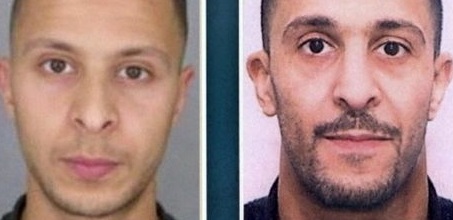Officers at wits end in staff shortages protest that literally put police on the sick
Officers staged a 24-hour no show protest over shortage of staff and overstretched resources caused by the state of emergency introduced after the extremist attacks in Paris and Brussels.
Officers staged a 24-hour no show protest over shortage of staff and overstretched resources caused by the state of emergency introduced after the extremist attacks in Paris and Brussels.
Officers in Molenbeek, the Belgian capitals suburb closely linked to many of the terrorists who carried out the atrocities that killed 162 people in November 2015 and last March, stayed at home earlier this month for a day-long period of shifts.
They collectively threw a sickie to impress on policing leaders in Belgium that they were at their wits end.
Police from other districts had to be drafted in to cover for colleagues as the security crackdown, including street patrols by the army, entered its 14th month.
There is a reported shortfall of 40 officers to cover extra patrols in the troubled suburb in which key figures in attacks across Europe were radicalised.
They are talking about an overload of work, which I can understand. Things have not been easy either in 2015 nor in 2016, said Superintendent Johan De Becker, the senior police officer for Brussels West, which includes Molenbeek.
He acknowledged that government promises of extra officers and resources had failed to materialise but told officers that one cannot take the population hostage.
The sick note demonstration in Molenbeek closely mirrors the actions of thousands of French officers last October when they took to the streets to stage six consecutive nights of protest across several cities.
Their protests forced a climbdown and the promise of an upgrade to equipment and improved working conditions for the country`s 220,000-strong law enforcement officers as France`s national chief of police, Monsieur Marc Falcone, was despatched around the country to compile a list of the forces grievances.
Following the Belgian protest, Molenbeek officer Kris Verstraeten, spokesperson for police staff association VSOA Politie, said: Our batteries are empty. We are short of staff and face a lack of resources. The officers are at their wits end.
A lack of resources and staff deficiencies have been cited as explaining a number of missed opportunities to arrest Salah and Brahim Abdeslam before the Paris attacks in which both played a key role.
Police reportedly missed tip-offs about the brothers who had a long record of petty crime and well-documented links with Abdelhamid Abaaoud, the ringleader of the November 2015 Paris atrocity who also grew up in Molenbeek.
One investigation in February 2015 saw officers search the apartment where the Abdeslam brothers lived and confiscate a mobile phone, four computers, two Sim cards and three memory sticks.
Staff shortages meant that the electronic devices were not checked if they had been they would have discovered that the brothers were in touch with known terrorism suspects.
One of the contacts on a device was Mohamed Abrini, known as the man in the hat seen in surveillance footage of the three Brussels airport bombers, and who is now in custody in Belgium awaiting trial on terrorism charges.
Seven months after that investigation, Brahim died carrying out a suicide bombing in Paris, and Salah, who had helped to carry out and plan the attacks, went on the run. His arrest last March while hiding in Molenbeek is believed to have precipitated the Brussels bombings.
On March 22 three co-ordinated suicide bombings took place. Two bombs were detonated at Brussels airport a third failed to go off and an hour later a bomb exploded on an underground train outside Maalbeek station. A total of 35 people died.


